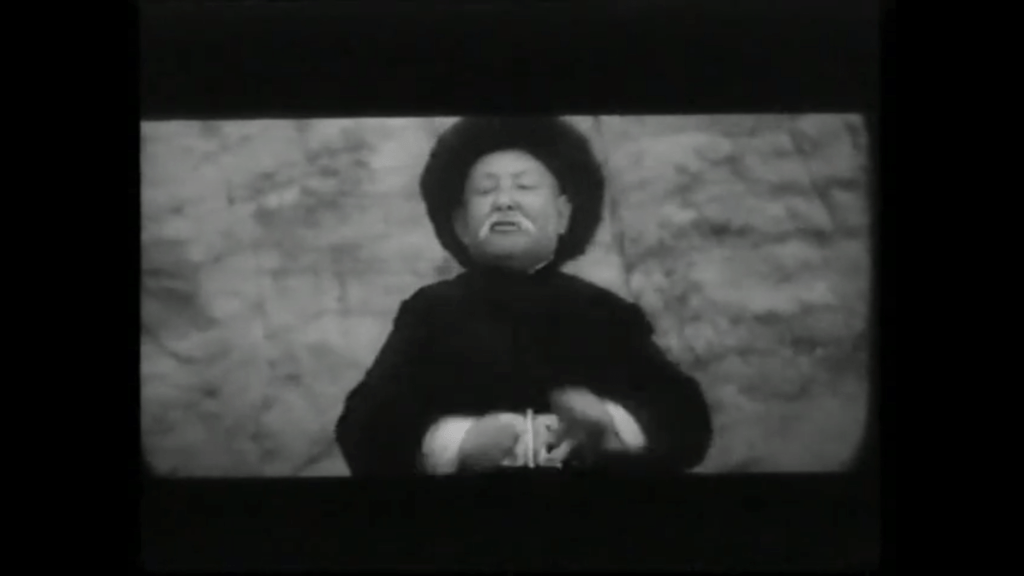CENTRAL ASIAN CINEMA. Manastchy introduces us to the beauty and poetry of one of the maim Kyrgyz storytellers, Sayakbay Karalayev, and the mythical epic of Manas. This short film is one of the first works of Bolotbek Shamshiyev, one of the greatest Kyrgyz directors.
“Central Asian Cinema” is a series of collaborative articles written by different members of the Novastan team to share their favourite cinematographic moments about Central Asia. Each article describes a film produced or shot in Central Asia, available online.
The short film Manastchy (1965) is the graduation project of Kyrgyz director Bolotbek Shamshiyev (1941-2019), then a fresh graduate of the Gerasimov Institute of Cinematography in Moscow. The documentary is about Sayakbay Karalayev, probably the most famous “manastshi” in Kyrgyzstan.
Manastshis are the narrators of the Kyrgyz popular oral epic of Manas, the Kyrgyz hero. The film contains some unique recordings of this quasi-mystical poetry. At a time when Manas has become the fundamental symbol of the Kyrgyz culture, the movie does not lose its actuality.
For his work, Bolotbek Shamshiyev received the main prize at the International Short Film Festival in Oberhausen and subsequently became one of the most important directors of the so-called “golden era” of Kyrgyz cinema. The film is available on YouTube with English subtitles.
Read more on Novastan: The Wounded Angel: a dramatic and profound portrait of 1990s rural Kazakhstan
Share your Central Asian films: You want to react to this article, add something about this film (a link with or without subtitles), or share with Novastan and its readers another Central Asian film? Send us your review of the film (in a similar format to this article) to info@novastan.org. Thank you all!
Novastan Editorial Team
Translated for English by Shalom Gnassounou
Edited by Anna Wilhelmi
For more news and analysis from Central Asia, follow us on Twitter, Facebook, Telegram, Linkedin or Instagram.
 “Manastchy”: the Kyrgyz soul in all its poetry
“Manastchy”: the Kyrgyz soul in all its poetry 



